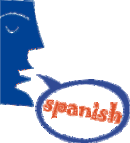I KNOW I KNOW YOU

Sé que los conozco! Just as there are two verbs for “to be” in Spanish (Ser and Estar), Spanish has two verbs for “to know”, Saber and Conocer. Saber means to know information or facts, or knowing how to do something. Saber is also used to say how things taste. Conocer means to be familiar with a person, place, or thing, or to have met for the first time. SABER
Let’s look at some simple examples of the use of Saber. Saber is an irregular verb. You must memorize the various conjugations, especially in other tenses besides the present. Remember the subject pronouns in parenthesis are usually not said unless the speaker wants to place emphasis the subject:
She knows where you live. - (Ella) sabe dónde vive.
I know the answer. - (Yo) sé la repuesta.
We don’t know why he is angry. - No Sabemos por qué (el) está enojado.
Do you know where they are? - ¿Sabe dónde están (ellos)?
I know that. – Sé eso.
Here are some examples on how to indicate, knowing how to do something. Saber plus an infinitive:
I know how to do it. - (Yo) Sé hacerlo. Or, Lo sé hacer.
She knows how to cook very well. - (Ella) Sabe cocinar muy bien.
We know how to ski. - Sabemons esquiar.
Do they know how to drive? - ¿Saben manejar?
Here are some examples on “to know that”. “Saber que”:
I know that I know you. – Sé que lo conozco.
Do you know that I am twenty-nine years old? –¿Sabe que tengo viente- nueve años?
We know that she is in a hurry. - Sabemos que tiene prisa.
They don’t know I am here. – No saben que estoy aquí.
You can use Saber to say how food tastes:
This pastry tastes very good. – Este pastel sabe muy bien.
What does it taste like? - ¿A qué sabe?
It tastes like almonds. – Sabe a almendras.
CONOCER
To be familiar with a person, place or thing you will use Conocer. Also conocer is used to state people have met for the first time. Conocer is not considered an irregular verb, but it does have a spelling change in a few cases. (By the way, if you need some help on the conjugation of verbs, I suggest The Big Red Book of Spanish Verbs. Published by McGraw Hill and written by Ronni L. Gordon and David M. Stillman. It has 555 fully conjugated Spanish Verbs in all tenses. Well worth the money, about $15 US). Take a look at some examples of the uses of Conocer:
I know Phillip. - Conozco a Phillip.
She knows John. - Conoce a John.
We know them. - Los Conocemos
The doctor knows the body well. - El médico conoce el cuerpo bien.
The bird knows his tree well - El pájaro conoce su árbol bien.
I met her for the first time. - La conocí para la primera vez.
It’s important to ‘know about’ and become ‘familiar’ with, Saber and Conocer.
Spanish Tip of the Day: Always look for a reason to practice speaking Spanish to any one who will listen!
Hope this helps!
Fred
***********
Hi, my name is Fred. My background in Spanish is a year in high school
(long ago) and the last five years taking private lessons almost daily, in
the States and in Panamá'. I am not yet fluent, but maybe I can pass on
to you some tips to help your Spanish learning experience.
